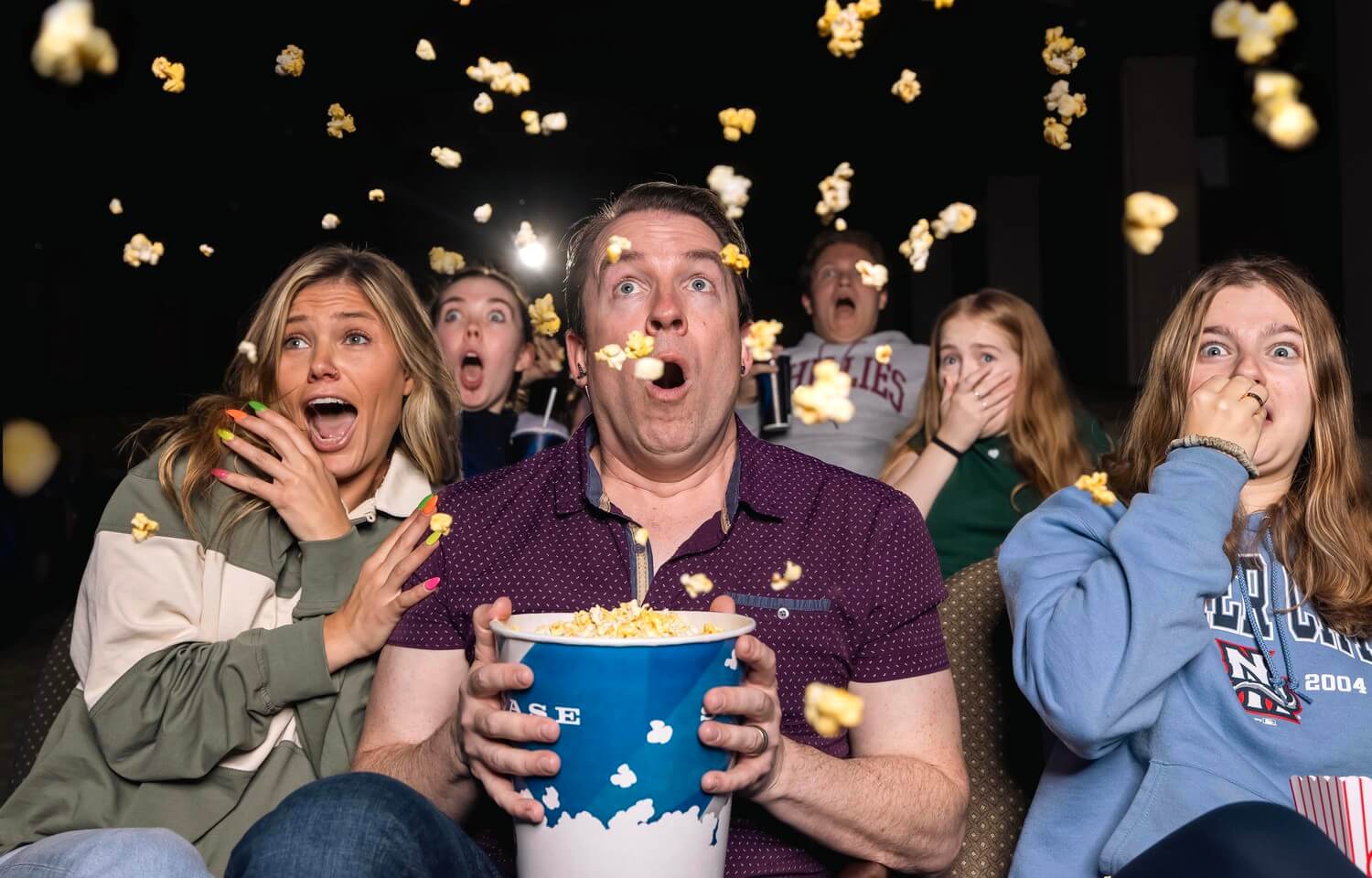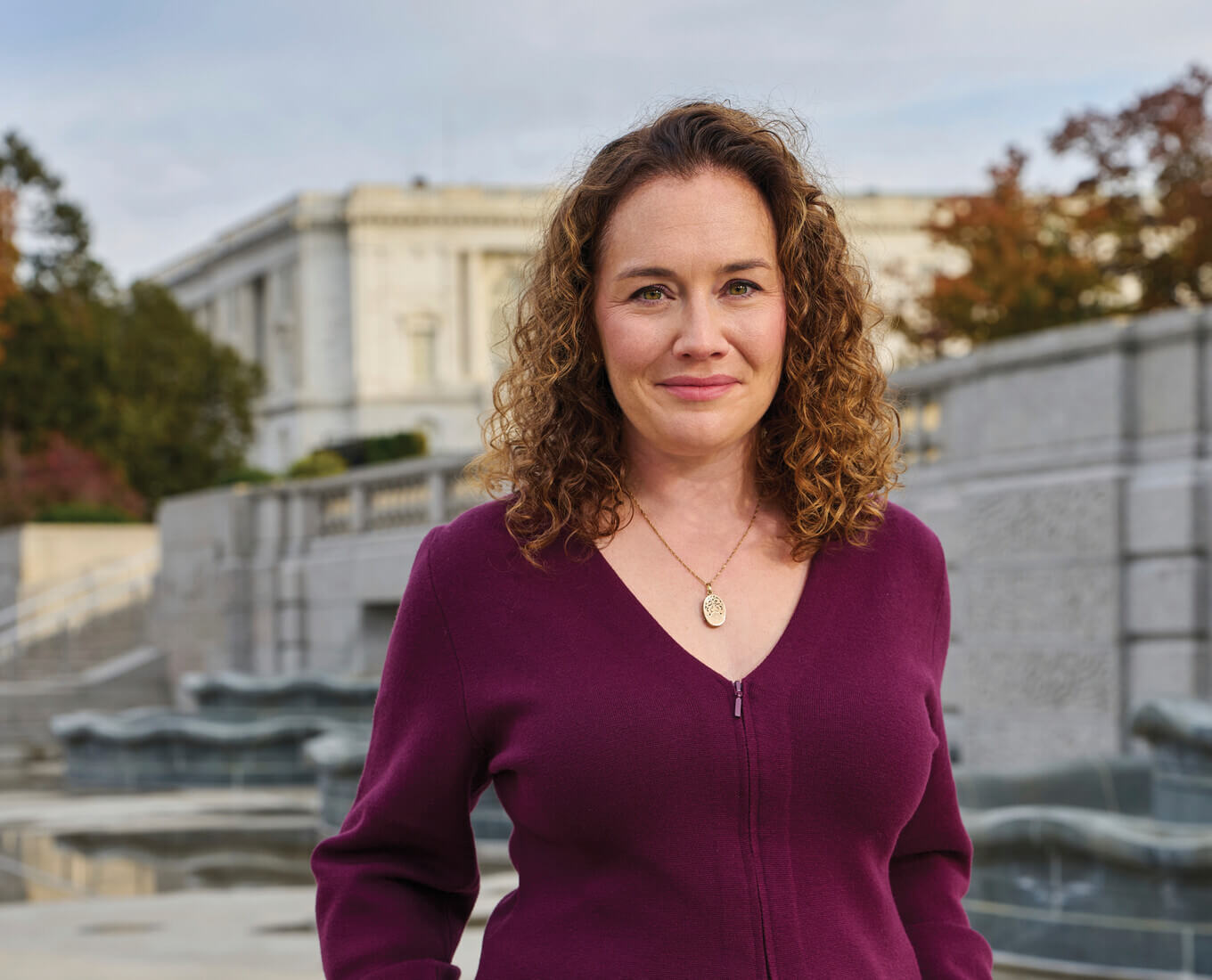Horror movies don't generally win Academy Awards and slasher films don't get marquee treatment at Cannes, but don't dismiss the genre, says Scott Malia.
In his course, Horror Films, Sex and Gender, Malia, associate professor and chair of the theater and dance department, argues that scary stories have much to teach us about resilience.
"I think that's one of the reasons why young people identify with them," Malia says. "These are stories about people discovering they are more than they thought they were, that they have strength they didn't know they had.
"And I think being an adolescent, being a young person, can be so painful," he continues. "There's such pressure to conform, to find your lane, to know who you are. The horror film teaches you that you have more mettle than you thought, that your own resourcefulness will save the day."
Horror movies offer interesting and significant ideas about identity, Malia says, "and I think there's something really empowering about that."
The astute viewer will notice vestiges of medieval morality plays in the modern horror movie, e.g. their allegorical nature, episodic structure and stock characters. And the "final girl" — the sole survivor — personifies the heroic virtue achieved by following a what-not-to-do strategy.
Malia breaks it down:
- Don't be different. Chances of survival in a horror movie are greatly diminished if you're a person of color, LGBTQ, a woman or disabled. More recent films, such as "Barbarian," are challenging biased conventions, but such is the history, Malia says.
- Don't be sexually active. Though graphic and often exploitative, slasher films tend to be moralistic, Malia says. Such films tend to punish young women who are confident and free about sex. The final girl is almost always maternal, studious and, most importantly, a virgin.
- Don't go to a remote location. Weekend getaways with friends to a lake or a cabin are a big no-no. "You're isolated, which means no one is around to help," Malia says. "Cell phone service won't work, either; so, in a remote location, you're pretty much toast."
- Don't forget to get your car serviced. "So many times someone in a horror movie is trying to escape the killer and they get in the car and they either don't have their keys or the car won't start because, of course, we want to keep the victims where the killers can scare them, chase them, and, maybe, do away with them," Malia says. "So make sure you have your Triple A membership up to date."
- Don't enter the abandoned house, hospital or asylum. But if you must, don't ask if someone's there more than three times. They're not. "In these movies, people repeatedly go further and further into dark, unfamiliar, dangerous-seeming spaces asking things like, 'Kevin, are you there?'" Malia says. "Kevin's not there. Kevin's dead."
- Don't play pranks. "Pranks are the foundation or the backstory for many horror movies," Malia says. "A prank that went wrong, one intended to scare someone but then that someone gets hurt or humiliated or killed, well, somebody who loves that person is gonna come back years later and seek vengeance."
- Don't assume the monster's dead. It isn't. "Don't do that thing that a lot of final girls do, where they're feeling relieved and they lay their weapons down, which oftentimes the killer will then pick up and use against the final girl," Malia says. "Unless you see somebody go into a fire and get torn limb from limb — and even then sometimes movies have found a workaround for those things — you want firsthand evidence the killer is dunzo."
- Don't trust adults. They're useless, especially in slasher movies, Malia says. "The kids are in a world unto themselves and they know what's happening to them. It's part of a larger idea; that is, that teens feel misunderstood. The parents don't take them seriously, especially if whatever's out there is supernatural."
- Don't be a bully or a jerk. "If someone is obnoxious or really cruel, that puts a target on their back," Malia says.
- (Mostly) don't get separated. "Separating versus not separating is tricky," Malia says. "If you're in a stressful situation, not everyone would respond logically or appropriately, right? That being said, a person should not go off on their own because they're most likely not gonna come back. But pairs can be a problem, too, if you're paired with the villain."
Above all else, though, there is one "don't," one taboo that, if breached, is unforgivable, Malia says: "Girl, don't go to the basement."


